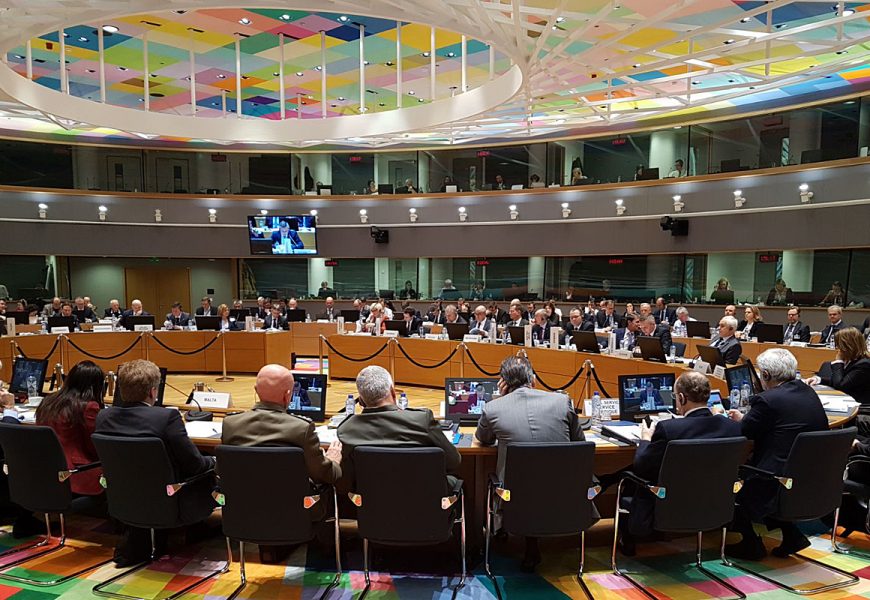Minister Krstičević attends EU Forein Affairs Council
The Croatian Deputy Prime Minister and Defence Minister Damir Krstičević attended the meeting of the EU Foreign Affairs Council in the defence ministers format of 6 March 2018.
The Council adopted the Decision on first 17 projects to be developed within the Permanent Structured Co-operation (PESCO), established in December 2017 as a framework enhancing and developing he European defence capabilities and joining and co-ordinating EU members’ defence systems.
The ministers exchanged views on the ongoing initiatives within the Common Security and Defence Policy , with an emphasis on the European Defence Fund implementation roadmap the activities pertaining to military mobility, the EU missions and operations and further intensification of the EU –NATO co-operation.
Minister Krstičević stressed that Croatia viewed the establishment of PESCO as an important step towards a stronger security and defence and confirmed the participation in five PESCO projects “Military Mobility”; “Deployable Military Disaster Relief Capability Package“, “ Network of Logistic Hubs in Europe and Support to Operations“, “ Upgrade of Maritime Surveillance“ and “Cyber Rapid Response Teams and Mutual Assistance in Cyber Security“.
The projects enable Croatia build and upgrade the national capabilities and open the door to its defence industry and research projects.
To optimise the implementation of PESCO, Croatia welcomes the link with the European Defence Fund; which is expected to provide equal conditions of use of resources to all member states, in particular to their SME . The Minister also underlined the importance of transparent and inclusive NATO dialogue and complementarity and praised the activities pertaining to military mobility as example of excellent cooperation vital for the outcome of the EU and NATO-led operations. The Minister also stressed the importance of the EU-NATO co-operation in southeast Europe, particularly in support to the partner countries in the building their democratic institutions and enhancing their capacities to cope with hybrid threats.
https://www.youtube.com/watch?v=_zuLkca61Cw
[ngg_images source=”galleries” container_ids=”2705″ display_type=”photocrati-nextgen_basic_thumbnails” override_thumbnail_settings=”0″ thumbnail_width=”870″ thumbnail_height=”600″ thumbnail_crop=”1″ images_per_page=”20″ number_of_columns=”0″ ajax_pagination=”0″ show_all_in_lightbox=”0″ use_imagebrowser_effect=”0″ show_slideshow_link=”1″ slideshow_link_text=”[Show slideshow]” template=”/var/www/morh/public_html/wp-content/themes/morh/nggallery/gallery-carousel.php” ngg_triggers_display=”never” order_by=”sortorder” order_direction=”ASC” returns=”included” maximum_entity_count=”500″]
